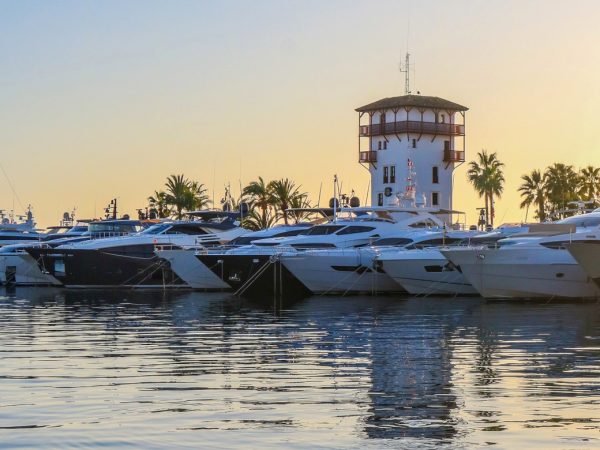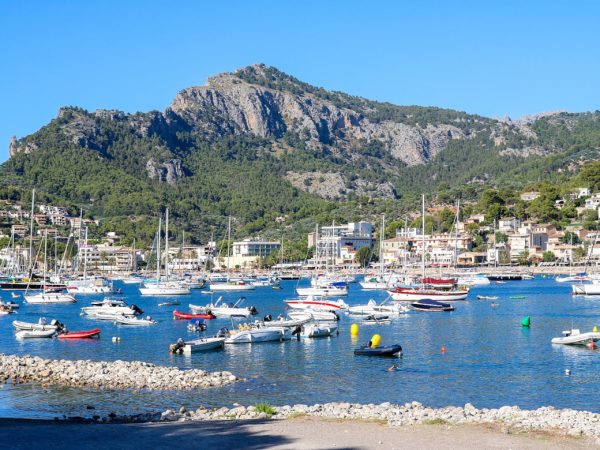At Solaris Sailing, we believe that sustainable sailing is the way forward and we strive to make our sailing experiences as eco-friendly as we can. We do this in a number of ways including respecting the local flora and fauna, using electric outboards on our yacht tenders to reduce emissions, avoiding plastics, taking care with disposal of bilge water and other waste substances, adopting a zero waste approach on board, in addition to other methods outlined within this article. We have also adopted a carbon off-setting strategy working in partnership with myclimate.org within which we contribute an offsetting amount from our training and charter guest fees to offset the emissions created by those who visit us by air, road or sea.
By taking this approach, we hope that we can inspire sailors to change their habits. The sailboat remains the most responsible way to navigate and explore the coasts and islands and whilst sailing, you are really close to nature and it is easy to think that just by using wind-power, you are helping to save the planet; however there is much more that can be accomplished to become a true eco-friendly sailor.
In an ideal world, the boats that we use should be produced from scratch to be as eco-friendly as possible and built using carefully selected materials such as FSC certified wood. Engines should be constructed to maximise lower consumption, less emissions and low noise and the hull should be constructed from vinylester resin and not the older polyester or the hazardous epoxy resin. The reality is of course, that the cost of purchasing a new sustainable boat is not within everyone’s reach.
All is not lost! There are many ways to go eco-friendly sailing without it costing you the earth such as:
- Selecting the correct antifoul for your boat and location and consider using more environmentally friendly boat paints and non-biocidal coatings such as silicone, vinyl or ultrasonic technologies.
- Installing an inline bilge filter to catch oil and fuel or using a bilge sock. Also, using a funnel when pouring fuel or oil and avoid overfilling your tank to prevent overflow.
- Disposing of waste oil at an oil bank and oily materials in hazardous waste containers and never using detergents to deal with spills. Carry a spill kit instead.
- Energy efficiency on board can be accomplished by investing in solar or wind generators to avoid running your engine to charge batteries or consider using an electric outboard, or even inboard.
- Changing to LED boat lights.
- Keeping your hull clean, engine running efficiently and trimming the engine to minimise fuel consumption.
- Recycling as much waste on board as possible.
- Utilising marina & shore facilities whenever the an opportunity arises.
- Fitting a holding tank and using it, particularly in estuaries and anchorages and only emptying holding tanks at pump out stations or when more than 3 miles offshore.
- Using environmentally friendly cleaners and products whenever possible, such as: toilet cleaners, recycled toilet paper, & biodegradable rubbish bags.
- Waxing your hull to remain fuel efficient and reducing the need for cleaning products over the season.
- In regards to flora and fauna, Taking care not to introduce invasive species by using preventative steps before leaving an anchorage such as: removing visible animal and plant matter and washing off both the anchor and chain. The rule of thumb is to stay at least 100m away from marine wildlife in the water and 50m away from marine wildlife on cliffs and rocks. Engine and hull noise can disturb marine flora and fauna. In protected natural areas, near beaches and in any sensitive area, slow down to reduce noise and waves.
- Avoiding sailing through water plants and weed whenever possible.
- Raising your sails as often as you can and don’t use your engine unnecessarily.
- Preventing plastic bags, drinks cans and loose items from being thrown or blowing overboard and using butt boxes for cigarette stubs.
- Avoiding using plastics whenever possible.
- Using the three R’s: Reduce, reuse, recycle.
- Removing excess packaging before you go on the boat.
- Recycling as much waste on board as possible.
- Avoid using sun oil. Sun oil forms a layer on the sea’s surface reducing photosynthesis essential for life. It is better to use sun milk or any other water-soluble product to protect yourself from the sun.
- Provision your yacht with locally-grown, produced, or sourced grocery items.
If you would like any further information about sustainable sailing, please contact us and we’ll be happy to help.




